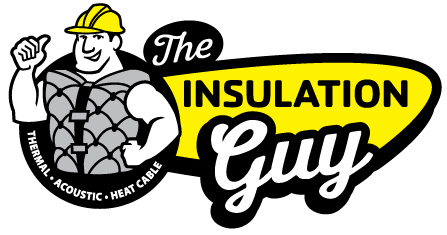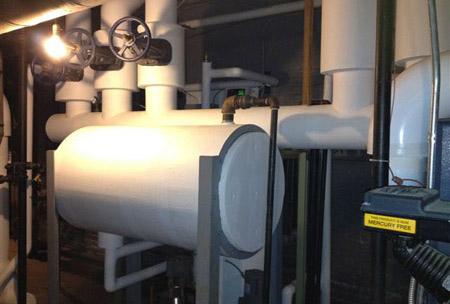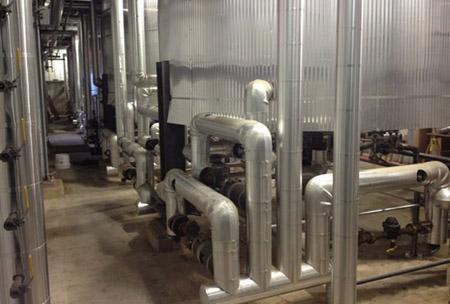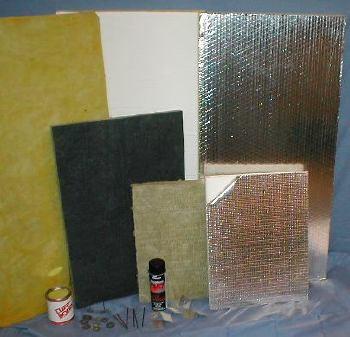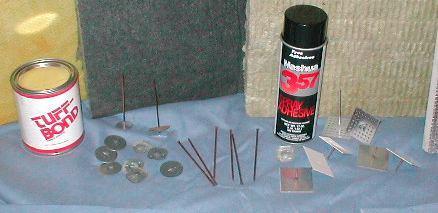Industrial Foam Board Insulation
Foam board insulation is available in various densities and temperature ranges. Our foam board insulation can be used in any application — from HVAC to tank bases, platens, machined shapes, sound attenuation, and more. These materials are available in one sheet increments or by the entire truckload.
Benefits of Industrial Foam Board Insulation
Industrial board insulation has a number of features that make it an excellent choice for many different types of industrial applications, including:
- For applications ranging from -40ºF to 2300ºF
- Closed-cell infrastructure for ultimate industrial board insulation
- Strength, durability and vapor resistance
- Non-combustible
- Often faced with reflective foil for added thermal performance
The standard thickness is 1″ (25mm), but other heights are available on special order only. Standard widths are 48″ (1220mm) or 96″ (2440mm). Other widths are available by the linear foot to order.
Different Grades of Foam Board Insulation
The hardboard fiberglass reinforced foam board insulation is available in styrofoam and expanded polystyrene densities. This industrial board insulation has the highest compressive strength of all our grades, making it perfect for steel plate compression or other high-load applications.
Styrofoam
Styrofoam foam industrial board insulation is available in 7 lb/ft3 density with either a smooth surface texture or rough surface texture. The rough surface provides more resistance to dusting than the smooth surface does. These materials are water-resistant and flame retardant, protecting them from damage if they get wet or near open flames or sparks that could cause a fire.
Expanded Polystyrene
The expanded polystyrene grade industrial foam board insulation is available in 4 lb/ft3 density with either a smooth surface texture or rough surface texture. It is made of materials that are water-resistant and flame-retardant, preventing them from being damaged by moisture or fire caused by open flames.
Semi-Rigid Urethane
Although the semi-rigid urethane flexible foam board insulation is available in 1 lb/ft3 density, it has very high compressive strength and will support up to 500 pounds (even when only 1" thick). This material is an ideal solution for sealing around steel plate compression connections, where dust can easily cause rust.
High Density
This grade of industrial foam board insulation is available in 6 lb/ft3 density with either a smooth or textured (rough) finish. This material obviously offers greater compressive strength than the lower grades; it's also heavier weight for shipping. Unlike other types of foam board insulation, this material is manufactured with a foam board adhesive on one side. It has excellent moisture resistance properties for areas like steel plate compression application, where high humidity can often be present due to condensation or rain.
Medium Density
The medium density foam board insulation is available in 3 lb/ft3 density with a smooth surface texture. This material has a lower compressive strength than the high-density grade, which makes it great for lightweight applications. It also provides greater resistance to moisture damage than the low and semi-rigid grades do; making it an ideal solution for sealing around piping, connections, and other areas that need protection from the elements.
Low Density
With a 1 lb/ft3 density, this industrial foam board insulation is perfect when you need lightweight structural support in non-load bearing applications such as HVAC ductwork — but it's not suitable for high compressive loads like steel plate compression or structural support applications.
Our team prides itself in being truly knowledgeable in understanding how to solve your industrial board insulation application and protection problems, whether simple or complex. Just call us during business hours toll-free at (888) 750-2650 or complete our RFQ form.
Frequently Asked Questions
Why do I need foam board insulation?
The insulation provided by foam boards is thermally efficient while reducing heat conduction through structural elements like wood studs and steel beams and other materials like plastic, metal, and concrete. Foam board insulation offers superior performance in sealing around pipes, wires, and other penetrations through the exterior barrier foam board system. The R-value and thermal resistance of building envelopes increase with foam board insulation applied to walls, roofs, and floors. In addition to insulating around wires, pipes, and other penetrations, foam board insulation offers superior performance due to the exterior foam board barrier system.
Does foam board perform better than fiberglass insulation?
Can foam board insulation be waterproof?
Are industrial insulation boards resistant to mold?
How does foam board insulation prevent condensation?
Don't see an answer to your question? Give us a call!
